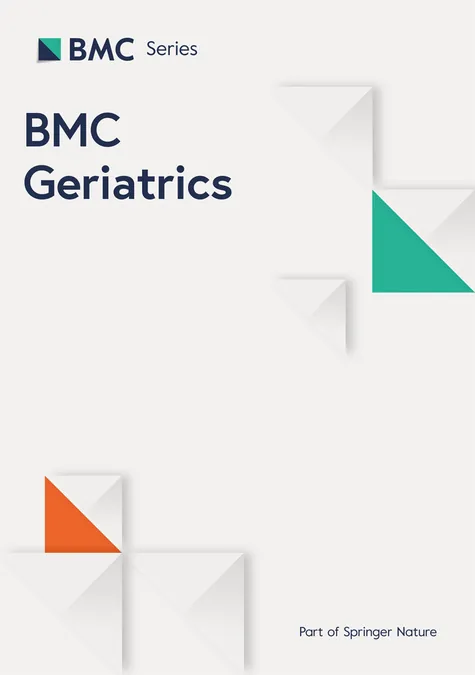
Unveiling the Hidden Struggles: Quality of Life for Advanced Dementia Residents in Macao's Long-Term Care Facilities
2024-11-23
Author: Jia
Introduction
The quality of life (QoL) for individuals with advanced dementia residing in long-term care facilities has emerged as a crucial concern, especially as the global population ages and dementia cases rise. Despite the urgency of this issue, empirical research, particularly within Chinese societies, is alarmingly limited. A recent study in Macao aims to bridge this gap, unveiling key determinants of QoL to foster better care strategies.
Study Overview
The purpose of this cross-sectional study was to assess the quality of life among long-term care residents with advanced dementia in Macao and identify significant factors influencing their well-being. A sample of 81 residents from three facilities was evaluated using established assessment tools, including the Functional Assessment Staging Test (FAST) and the Quality of Life in Late-Stage Dementia (QUALID) scale.
Key Findings
The study found that a significant majority of participants were female (65.4%) and at an advanced stage of dementia, with 70.1% classified as Stage 7 on the FAST scale. The average quality of life score on the QUALID was 23.94 ± 7.58, indicating a concerningly low level of QoL. Specific deficiencies were observed in areas like emotional expression, social interaction, and physical affection—critical aspects of human connection that enhance the quality of life.
Statistical analysis revealed that higher scores in pain assessments (PAINAD), the presence of behavioral and psychological symptoms of dementia (BPSD), and advanced stages of dementia significantly correlated with a reduction in quality of life, accounting for an impressive 65.9% of the variability observed in this population’s QoL.
The Bigger Picture of Dementia and Quality of Life
Given the staggering statistics—projected dementia cases may rise to 75 million by 2030 and 132 million by 2050—it is evident that this is not just an issue for Macao but a global crisis. The study draws attention to the necessity of enhancing care strategies not only in Macao but across the globe, particularly where the elderly face similar challenges.
Dementia affects approximately 55 million people worldwide, and the implications of lowered quality of life are profound. It not only impacts the individuals but also their families and communities. Individuals with severe cognitive decline still retain some awareness; they can recognize pain and remark on their quality of life, emphasizing the need for effective management strategies.
Challenges in Care Delivery
Despite the need for effective approaches to managing pain and BPSD in dementia patients, these factors remain frequently overlooked in long-term care settings. The study's findings align with global literature, which highlights the crucial need for comprehensive healthcare strategies that provide holistic, individualized care. Common barriers include limited staffing, inadequate training, and a dearth of culturally sensitive approaches tailored specifically to the needs of diverse populations.
Insights and Recommendations
The revelations surrounding the QoL of residents in Macao's long-term care facilities are a wake-up call. The study advocates for the implementation of person-centered care models that prioritize emotional and social interactions among residents. Training healthcare staff to improve pain assessment and BPSD management is essential in this endeavor. Furthermore, strategies that enhance opportunities for social engagement—such as regular activities that promote interaction and physical contact—should be prioritized.
Moreover, continuous assessment of QoL through standardized tools like QUALID can provide timely insights into residents’ needs. There is also a critical need for policy changes that focus on pain management, behavioral interventions, and enhanced caregiver training programs.
Conclusion
This landmark study not only sheds light on the troubling state of quality of life for individuals with advanced dementia in Macao but also sets the stage for future research and intervention. Recognizing that the aging population will only intensify the challenge makes it imperative that healthcare systems integrate these findings to improve the lives of some of society's most vulnerable members.
As we grapple with the realities of dementia, the collective responsibility to advocate for compassionate and effective care should guide our efforts. The strides we make today could lead to transformative changes in quality of life for countless families grappling with the impact of dementia tomorrow.
Call to Action
To those in positions of power: it’s time to prioritize dementia care! Let’s ensure that our loved ones with advanced dementia receive the compassion, care, and dignity they deserve. The future of caregiving hinges on your decisions today!
 Brasil (PT)
Brasil (PT)
 Canada (EN)
Canada (EN)
 Chile (ES)
Chile (ES)
 Česko (CS)
Česko (CS)
 대한민국 (KO)
대한민국 (KO)
 España (ES)
España (ES)
 France (FR)
France (FR)
 Hong Kong (EN)
Hong Kong (EN)
 Italia (IT)
Italia (IT)
 日本 (JA)
日本 (JA)
 Magyarország (HU)
Magyarország (HU)
 Norge (NO)
Norge (NO)
 Polska (PL)
Polska (PL)
 Schweiz (DE)
Schweiz (DE)
 Singapore (EN)
Singapore (EN)
 Sverige (SV)
Sverige (SV)
 Suomi (FI)
Suomi (FI)
 Türkiye (TR)
Türkiye (TR)
 الإمارات العربية المتحدة (AR)
الإمارات العربية المتحدة (AR)